To inspire, aid and enable class XII students to select the most suitable undergrad colleges, since 2018 EducationWorld has been rating India’s Top 500 Arts, Science and Commerce, and Engineering colleges on several critical parameters of education excellence and ranking them in separate categories, writes Dilip Thakore
Now that the novel Coronavirus pandemic which forced the longest disruption and closure of education institutions from pre-primaries to universities (March 2020-February 2022) in India, is over, and the world’s largest, national population of children and youth is streaming back into campuses at the fag end of the academic year 2021-22, all that remains for online school-leavers is to write their class X and XII board exams. How well they perform in these vitally important exams will determine their junior college and undergrad education destinations.
According to all indications, after almost two years of online learning, all board exams will have to be written offline in designated examination centres this month (April). Even though syllabuses have been pruned, school-leavers have anxious times ahead. They have to score high marks in their chosen streams to ensure they enter the country’s best undergrad arts, science, commerce and engineering colleges.
Inevitably, in a nation which has foolishly under-invested in education and human capital development, competition for admission into the Top 500 of the country’s 45,000 undergrad colleges and 1,005 universities is intense. The total number of India’s higher secondary school-leavers per year is estimated at 12 million. Against this, the Top 500 can at best admit 500,000 top-scoring school-leavers from across the country. To aspire to enter the best colleges, toppers need to know which are the country’s most-respected undergrad education institutions.



Therefore to inspire, aid and enable class XII students to select and aim for most suitable undergrad colleges, since 2018 EducationWorld has been rating India’s Top 500 Arts, Science and Commerce, and Engineering colleges on several critical parameters of education excellence and ranking them inter se. In addition for the past nine years, we have also been ranking the country’s Top 300 universities and 100 private B-schools. The prime objective of this elaborate exercise which involves field interviews spread over three months with more than 4,000 informed sample respondents (faculty and final year students) is to aid and assist top-ranked school-leavers to choose the most aptitudinally suitable higher learning institutions for continuing their education.
Admittedly, several other publications including India Today, some business magazines and dailies also publish league tables rating and ranking the country’s best higher education institutions. But we believe as an exclusively education-focused magazine of greater depth and experience of the education sector, EducationWorld is better qualified to provide context and analysis of our carefully curated league tables. Moreover, for ideological and accessibility reasons, unlike other publications, we rank public and private higher ed institutions (HEIs) separately. The rationale of this separation is that government HEIs provide highly subsidised education and therefore, tend to be the first choice of school-leavers. However because the number of high quality (Central government) HEIs is very limited and they foolishly levy universal (instead of targeted) rock-bottom fees, their admission cut-off marks are sky-high and annual intake of students is very limited.
Therefore, the majority of school-leavers are obliged to choose between poor quality state government colleges and relatively high-fees private colleges/universities, and tend to prefer the latter which are separate and distinct. Hence we rank them in separate league tables. For the same reason in the EW league table of engineering colleges, the highly subsidised 22 Central government-promoted Indian Institutes of Technology (IITs) and 31 NITs (National Institutes of Technology) which routinely dominate engineering league tables of other publications year after year, and require steep cut-offs for entry, are eliminated from the EW league tables.
Similarly our B-school rankings eliminate the capital intensive Central government-promoted IIMs (Indian Institutes of Management) which routinely top all media rankings. Instead, we rate and rank private B-schools which are more accessible and affordable. These carefully weighed considerations differentiate the annual EducationWorld India Higher Education Rankings from the tediously deja vu HEI rankings of other media publications.
Against this backdrop, we commissioned the well-reputed, Delhi-based market research and opinion polls company Centre for Forecasting & Research Pvt. Ltd (C fore, estb.2000) to poll well-informed educators and senior students countrywide to rate India’s best Arts, Science and Commerce colleges sub-divided into three categories — private autonomous, government autonomous and non-autonomous — on six benchmark parameters of higher education excellence, viz, competence of faculty; faculty welfare and development; curriculum & pedagogy, including digital readiness; industry placements; infrastructure and facilities, and leadership and governance quality. The scores awarded to the country’s most reputed 500 Arts, Science and Commerce (ASC) colleges by sample respondents under the six parameters were totaled to rank India’s best ASC colleges. All parameters are accorded equal weightage, except the critically important parameter of competence of faculty, accorded double weightage of 200.

To constitute an adequate size sample respondents’ database, our field personnel interviewed 1,789 faculty and 2,278 final year students of Arts, Science and Commerce colleges and requested them to award scores under all six parameters of excellence to institutions other than their own. The scores awarded by the respondents under each parameter to colleges were totaled to rank India’s best government autonomous, private autonomous and Top 100 non-autonomous Arts, Science and Commerce colleges. Segregation of colleges into these categories is necessary to avoid apples and oranges type evaluation,” says Premchand Palety, the founder-CEO of C fore. An experienced market research and opinion polls professional who began his career with ORG, India’s pioneer retail market research firm of the 1970s-2000, Palety, an alum of Punjab Engineering College and Delhi’s FORE School of Management, went solo with the promotion of C fore in the millennium year. Since then, the company which has 20 corporate clients countrywide has acquired several decades of experience of conducting field research and opinion polls. C fore’s clients include Nestle, several political parties and Hindustan Times.
In the pages following, we present India’s Top 200 private autonomous, Top 100 government autonomous and Top 100 non-autonomous Arts, Science and Commerce colleges. We believe that these league tables will aid and enable parents and school-leavers to choose the most suitable liberal arts higher education institutions for further study.
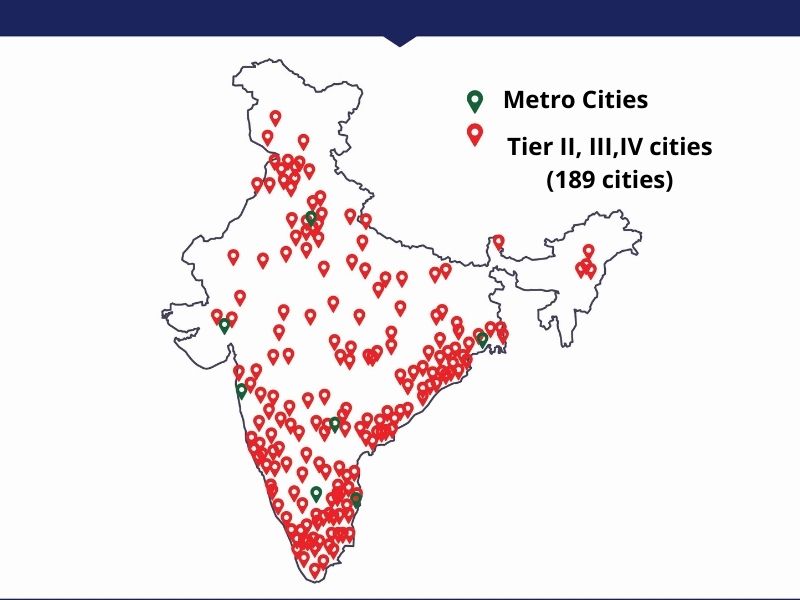
[userpro_private restrict_to_roles=administrator,customer]
India’s Best Private Autonomous Colleges
A majority of the private autonomous Arts, Science and Commerce colleges are Christian minority institutions. In an era when Hindu majoritarianism is on the march, the huge contribution of Christian institutions to Indian education needs to be borne in mind
India’s higher education system is defined by bewildering classifications. In undergraduate Arts, Science and Commerce (ASC) education, school-leavers have a choice between private autonomous, government autonomous and government/ private non-autonomous colleges.
In addition, a growing number of private liberal arts universities — Jindal Global, Ashoka, Amity, Flame among others which offer undergraduate education — have mushroomed across the country. School-leavers have to tread gingerly to select the most suitable undergrad institution to achieve their higher education goals and career aspirations.
Under s.12 and s.26 of the UGC Act, 1956, the commission is empowered to issue rules/guidelines to non-technical colleges/universities for the maintenance of standards. Moreover under the University Grants Commission (Conferment of Autonomous Status upon Colleges and Measures for Maintenance of Standards in Autonomous Colleges) Regulations, the commission is empowered to confer academic autonomy on high performance colleges. Autonomous status is highly prized by college managements because it confers several operational freedoms which are denied to non-autonomous colleges.
For one, unlike non-autonomous colleges which are tied to the apron strings of their affiliating universities, autonomous colleges are permitted to design their own syllabuses and curriculums, introduce new study programmes, conduct examinations and have the freedom to prescribe rules for admission in consonance with the reservation policy of the state government/ national policy, and independently stipulate tuition fees. They can also constitute their own academic councils, board of studies and finance committees and shall have “complete administrative autonomy and the privilege of appointing their own administrative staff and teaching faculty including principal”.
Recommended: India’s top-ranked private autonomous colleges 2021-22
Moreover, although its degree is awarded by the affiliating university, the name of the autonomous college is inscribed on the degree certificate. Under s.3, UGC also has the power to confer autonomy upon high performance private ‘deemed-to-be universities’ which are also fully autonomous, except that they are prohibited from affiliating colleges, a privilege (irrationally) restricted to public universities. In sum, within a higher education system in which universities affiliate 300-700 colleges, autonomous colleges can differentiate themselves from the herd.
However, UGC prescribes stiff conditions for awarding colleges and universities autonomous status. Applicant colleges must be of more than ten years’ standing and “accredited by either NAAC (National Assessment and Accreditation Council) with minimum ‘A’ Grade or by NBA (National Board of Accreditation of the All India Council for Technical Education) for at least three programme(s) or be awarded autonomy by a corresponding accreditation grade/score from a UGC empanelled accreditation agency”. Unsurprisingly, only 871 out of the country’s 45,000 colleges have been awarded autonomous status by UGC (March 31, 2021).
But this complex, unwieldy higher education system has clearly outlived its purpose, whatever it was. On the recommendation of the K. Kasturirangan Committee (2018), the National Education Policy (NEP) 2020 proposes dismantling of the colleges affiliating system and proposes the evolution of colleges into multi-disciplinary degrees awarding universities in a phased manner.
Obviously, ASC colleges which have already been conferred autonomous status will be the first to transform into degree-awarding universities. And among government and private autonomous colleges, the latter — some of them over a century old — are best prepared for autonomy. In this context it’s also pertinent to note that a substantial number — perhaps a majority of the country’s 227-strong league of private autonomous ASC colleges ranked by EducationWorld — are Christian minority institutions. In an era when Hindu majoritarianism espoused by the all-conquering BJP and its allied organisations is on the march, the huge contribution of Christian minority schools and higher ed institutions to Indian education and towards nurturing the Indian middle class needs to be borne in mind.
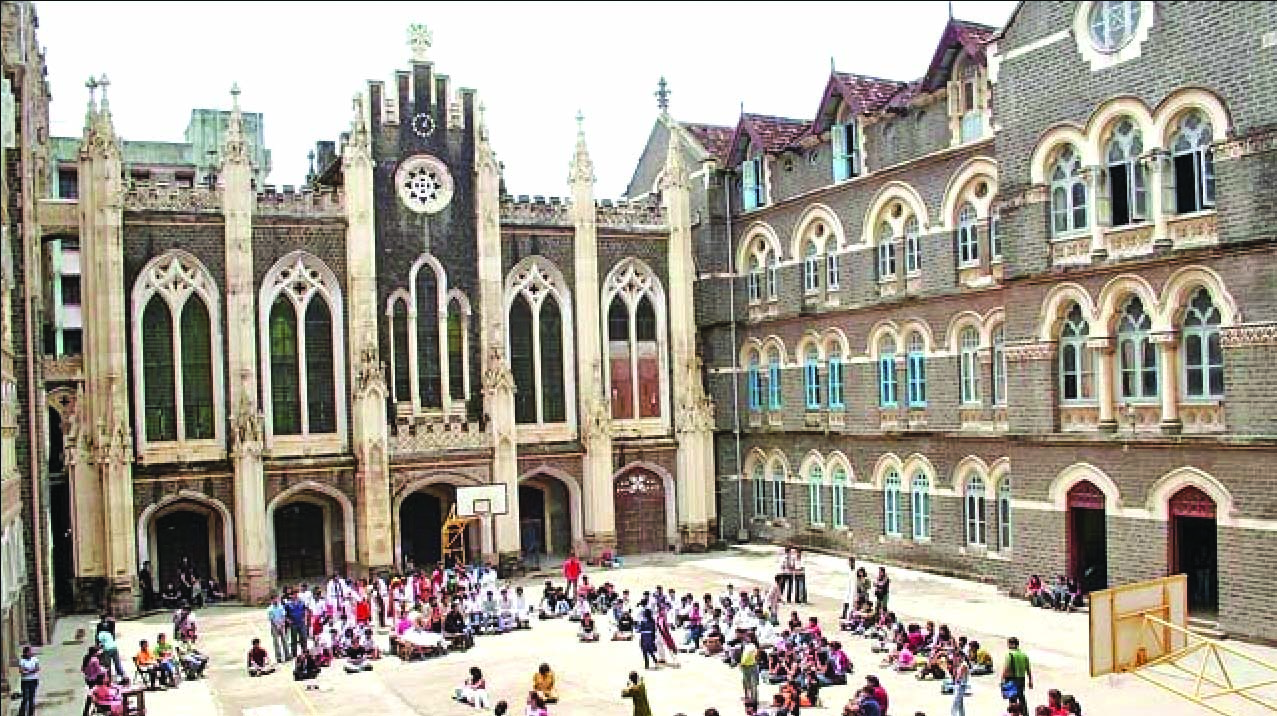
St. Xavier’s College, Mumbai: top-ranked for third year consecutively
Against this backdrop, it’s hardly a surprise that for the third year in succession St. Xavier’s College, Mumbai (SXM, estb.1869) is voted India’s #1 private autonomous college by a comfortable margin, followed by St. Joseph’s College (Autonomous), Bengaluru ranked second for the third year. Indeed, seven of the Top 10 undergrad colleges ranked in the EW 2022-23 league table of private autonomous colleges are vintage institutions promoted by the various orders of the church, and especially the Society of Jesus, aka Jesuits.
SXM’s dominance of the EW India league table of private autonomous colleges is complete. It is awarded the highest score under five of the six parameters — competence of faculty, faculty welfare and development, curriculum and pedagogy (including digital readiness), placements, and leadership and governance. Last year in a detailed interview, Dr. Rajendra Shinde, the affable principal of India’s most respected private autonomous college, attributed SXM’s top ranking to its swift switch to online learning because of the high competence of the college’s faculty in 2020- 21 when all education institutions were under lockdown for the entire year. Unsurprisingly, SXM has been awarded the highest rating under the parameters of competence of faculty and faculty welfare and development this year as well.
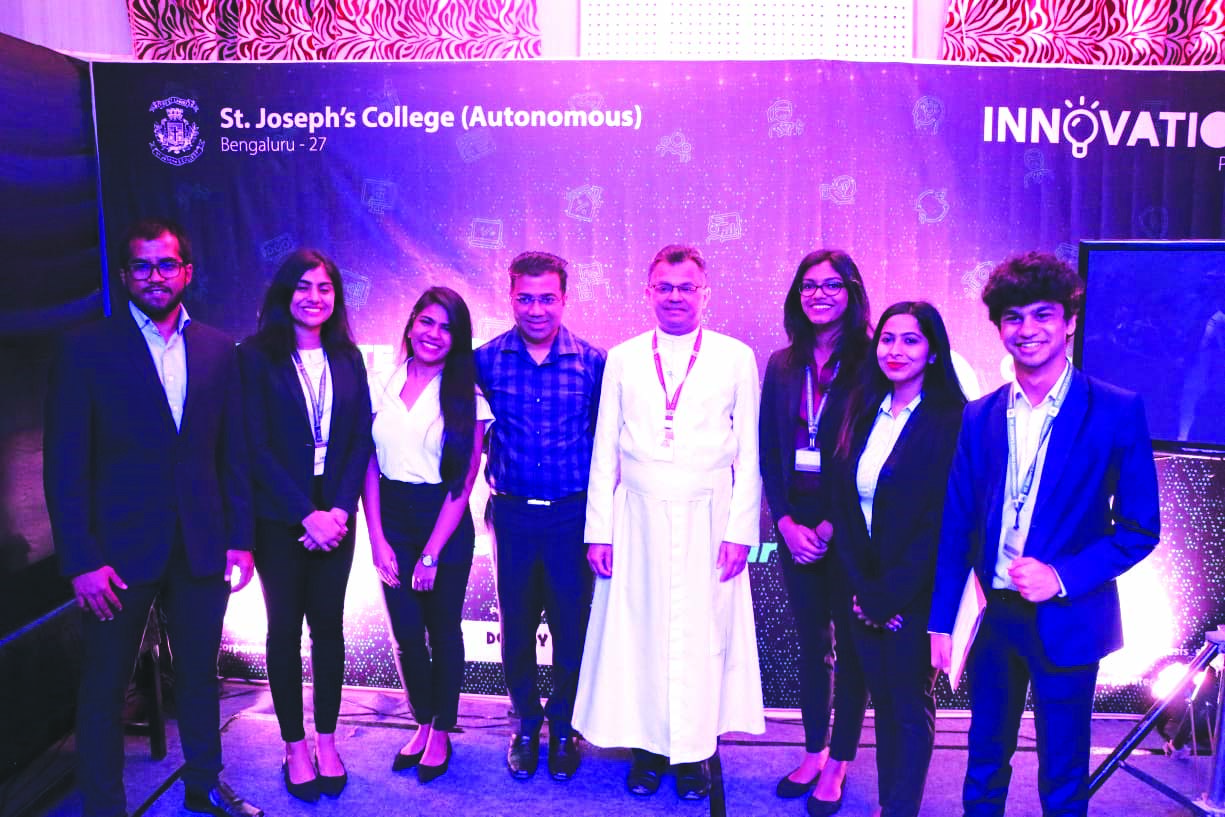
St. Joseph’s College, Bengaluru’s Fr. (Dr) Victor Lobo
It’s a measure of the Jesuit contribution to Indian undergraduate education that St. Joseph’s College, Bengaluru (aka Bangalore), another vintage institution (estb.1882) is ranked second after St. Xavier’s, Mumbai for the third year in succession. However, the response of the college principal Fr. (Dr.) Victor Lobo for the EWIHER 2022-23 project is less than enthusiastic. “We are very happy and glad that St. Joseph’s College (Autonomous) has retained its second position in India and 1st position in South India. St. Joseph’s College believes in the spirit of ‘Magis’ (sic). We believe we still have a long way to go and achieve many laurels,” says Dr. Lobo in a written reply to a detailed e-mail questionnaire from your editor.
On the subject of future plans of this highly ranked private autonomous college, Lobo is more forthcoming, even if vague. “We already have (drawn up) our plan for the next ten years. We are building two new campuses and the biggest dream is to become St. Joseph’s University. The SJU Bill has been passed by the (Karnataka) government,” says Lobo.
In sharp contrast, Dr. Parag Ajgaonkar, an alumnus of the University of Mumbai who assumed the office of principal of the Narsee Monjee College of Commerce and Economics, Mumbai (NMCCE, estb.1964) in 2017, is highly appreciative of the annual EW India Higher Education Rankings which he describes as “extremely scientific and comprehensive study of higher education institutes in India”. Perhaps that’s also because NMCCE has made a great leap forward in public esteem from #8 last year to #3 in India and #2 in Maharashtra in 2022-23. Moreover, its associated neighbouring Mithibai College — both these institutions are managed by the SVKM Trust (regst.1934) which manages over 40 education institutions in six campuses across India — is ranked India #4 (#7 in 2021-22) together with the Bengaluru-based all-women Mt. Carmel College (estb.1948) which has retained its last year’s rank. The precipitous rise of NMCCE and Mithibai colleges in the EW league tables suggests that the Jesuit hegemony of private autonomous colleges is under threat.
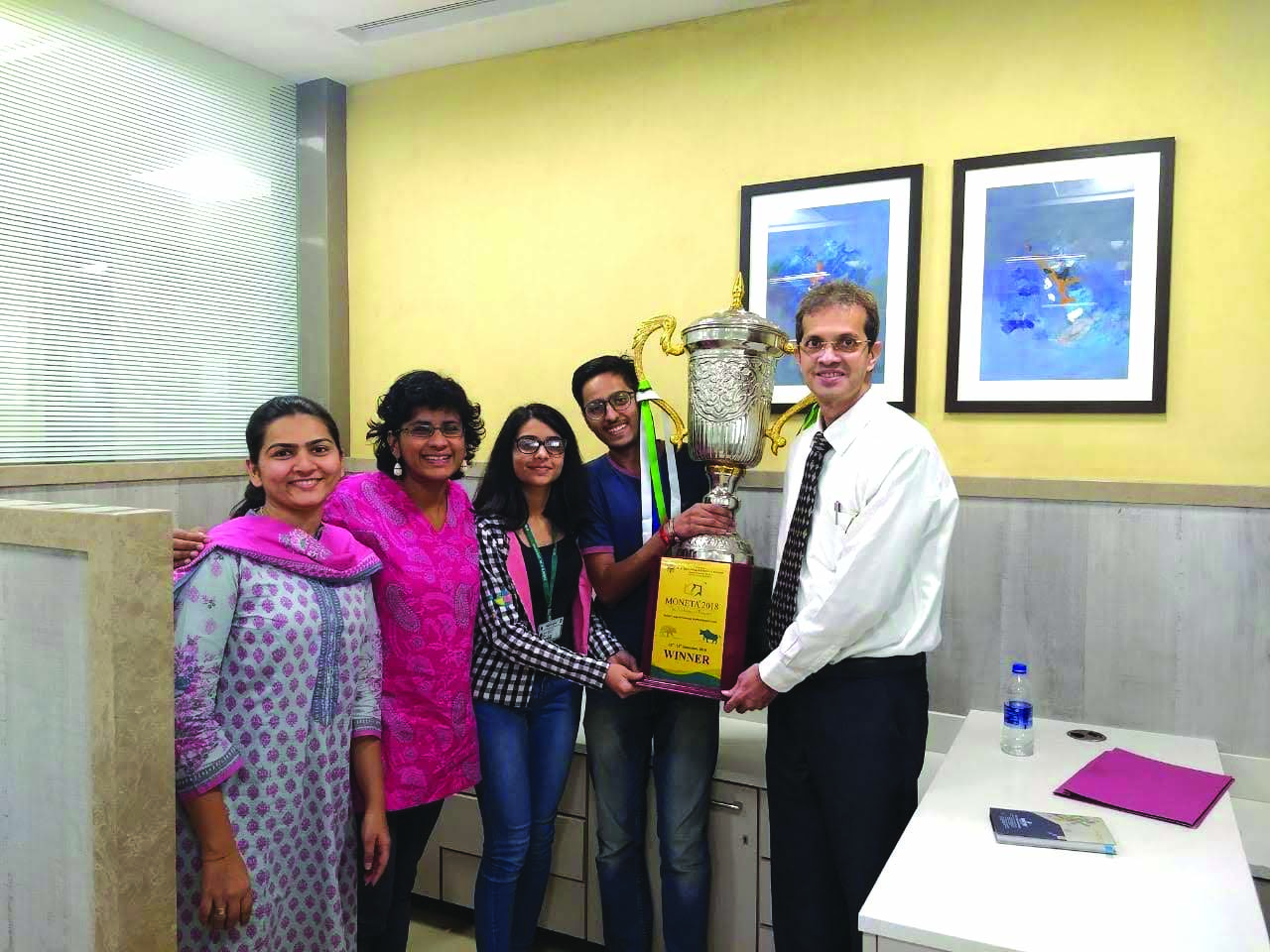
NMCCE’s Ajgaonkar
Dr. Ajgaonkar attributes NMCCE’s great leap forward in public recognition to a combination of factors, particularly “significantly upgrading the curriculum, introducing new study programmes and improving faculty skills through continuous faculty development programmes”. According to Ajgaonkar, the award of autonomous status has empowered NMCCE to introduce new honours programmes in commerce, statistics and Masters programmes in business analytics, and also introduce economics and analytics as also short-duration certificate programmes in a wide range of skilling subjects.
“Following the award of autonomous status, we have been able to focus on applications-based experiential learning which has enabled our students to assimilate higher order thinking skills. We have also introduced soft skills training of over 100 hours to improve students’ employability. Our autonomous status is to a great extent the cause of NMCCE’s upward mobility in the EW rankings,” says Ajgaonkar.
Following the Top 3, there is a reshuffle in the seating order at the Top 10 table. While the all-women Mount Carmel College, Bengaluru has retained its last year’s #4 rank, it has to share this position with Mithibai College, Mumbai which has been given a huge promotion this year to #4 (#7 in 2021-22). Ditto another Mumbai-based college — R.A. Poddar College of Commerce & Economics — which has zoomed to #6 (9).
On the other hand, Loyola, Chennai at #5, Rajagiri College of Social Sciences, Kochi #7, and Madras Christian College, Chennai #8 have yielded rank this year. St. Ann’s College for Women #9 nationally and #1 in Telangana, and B.K. Birla College of Arts, Science and Commerce, and Nagindas Khandwala College, both in Mumbai jointly ranked #10 have improved their rankings in 2022-23.
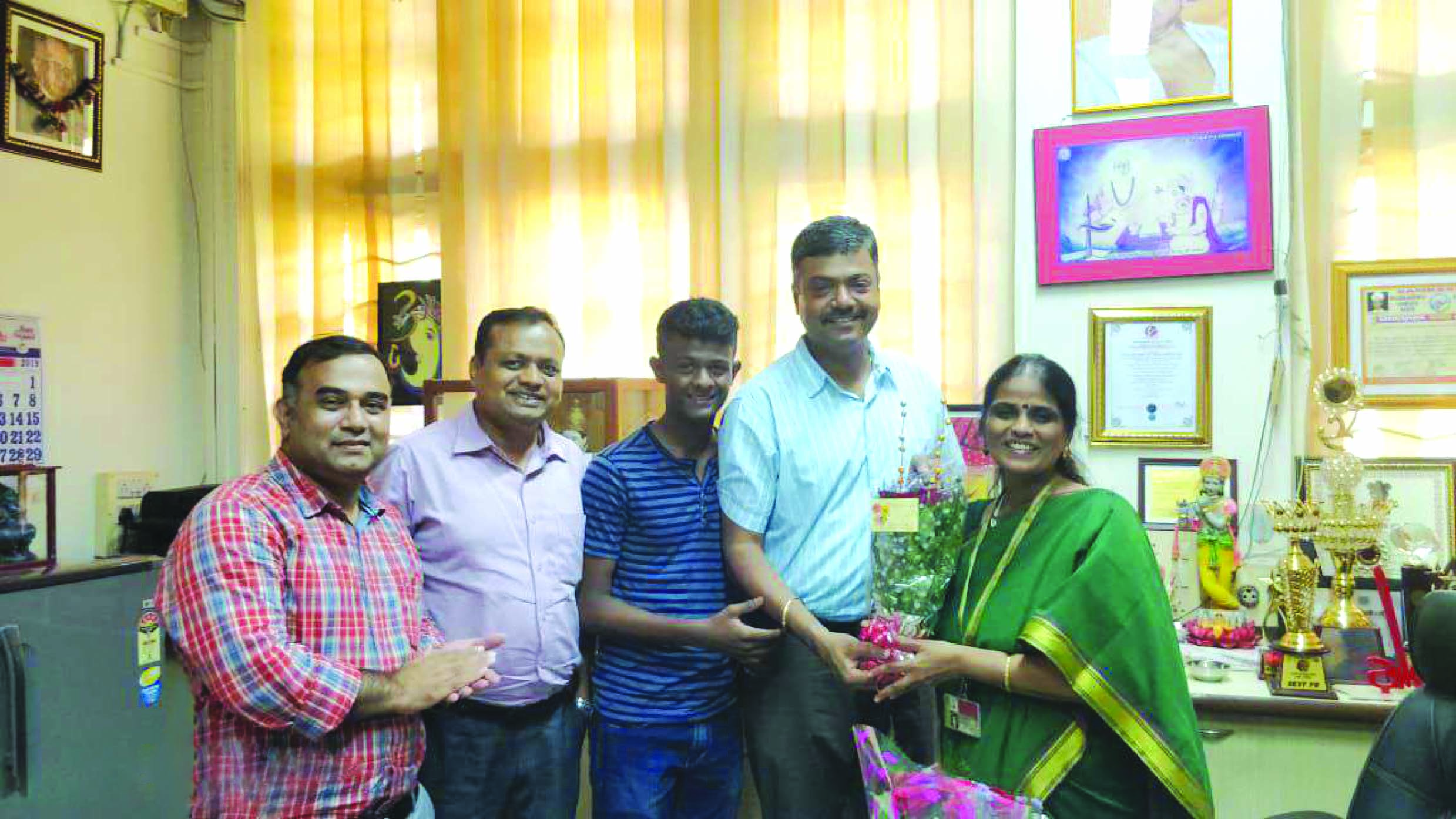
K.J. Somaiya College of Arts and Commerce, Mumbai’s Sanekar (right)
Dr. Veena Sanekar, ‘in-charge’ (pro tem) principal of the K.J. Somaiya College of Arts and Commerce, Mumbai (KJSC, estb. 1960), believes the promotion of the institution from #21 in 2019-20 to #19 last year and #7 in 2022-23 is a “moment to cherish” for KJSC. “Our steady improvement in the EW rankings to the Top 10 in India and Top 3 in Maharashtra over the past three years is validation that the measures we have taken for improving teaching-learning standards during the pandemic lockdown have been very effective. I believe that connectivism and constructivism is the key to our success. The high rank awarded to us by your knowledgeable sample respondents is special because in spite of the unprecedented adversities and challenges of the pandemic, we have maintained academic continuity and have contributed to developing the intellectual capabilities of the nation,” says Sanekar, an alumna of KJSC who signed up as faculty in 1991, and was appointed pro tem principal of the college in 2019.
Beyond the Top 10 table, private autonomous colleges that have improved their ranking this year are H.R. College of Commerce and Economics, Mumbai at #14 (19), the previously unranked Sri GCSR College, Rajam, Andhra Pradesh debuting at #17, Mar Athanasius College Kothamangalam, Kerala #17 (21), Fergusson College, Pune #21 (37), Kristu Jayanti College, Bengaluru #23 (27), SIES College of Arts, Science & Commerce, Mumbai #26 (39) and Jyoti Nivas College, Bengaluru #28 (39).
It’s also pertinent to note that while some colleges may be modestly ranked nationally, they are highly ranked in their states, most of which are larger and more populous than European countries. For instance, Ewing Christian College, Prayagraj (aka Allahabad) ranked #34 nationally is the #1 private autonomous college of Uttar Pradesh (pop.215 million), Khalsa College, Amritsar #46 in India is Punjab #1 and St. Xavier’s College of Education, Patna #63 in India is Bihar #1. Mind you these are not inferior institutions. These and numerous others with modest national, but high state rankings have been conferred autonomous status after careful vetting by NAAC and UGC.
Also Read: India’s top-ranked private autonomous colleges 2021-22












Add comment